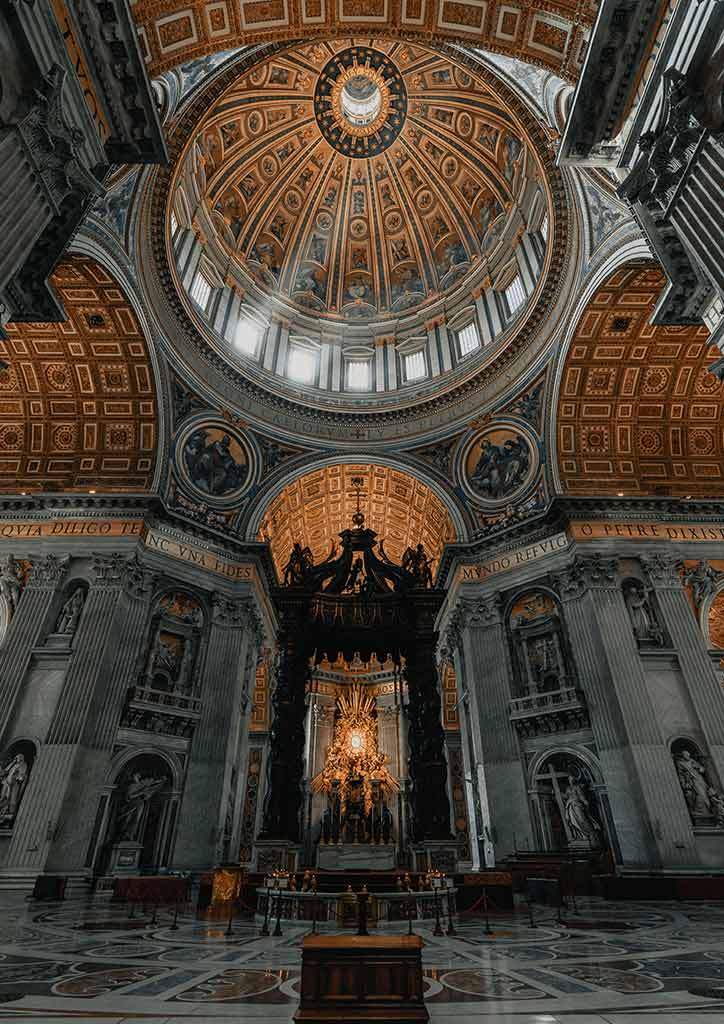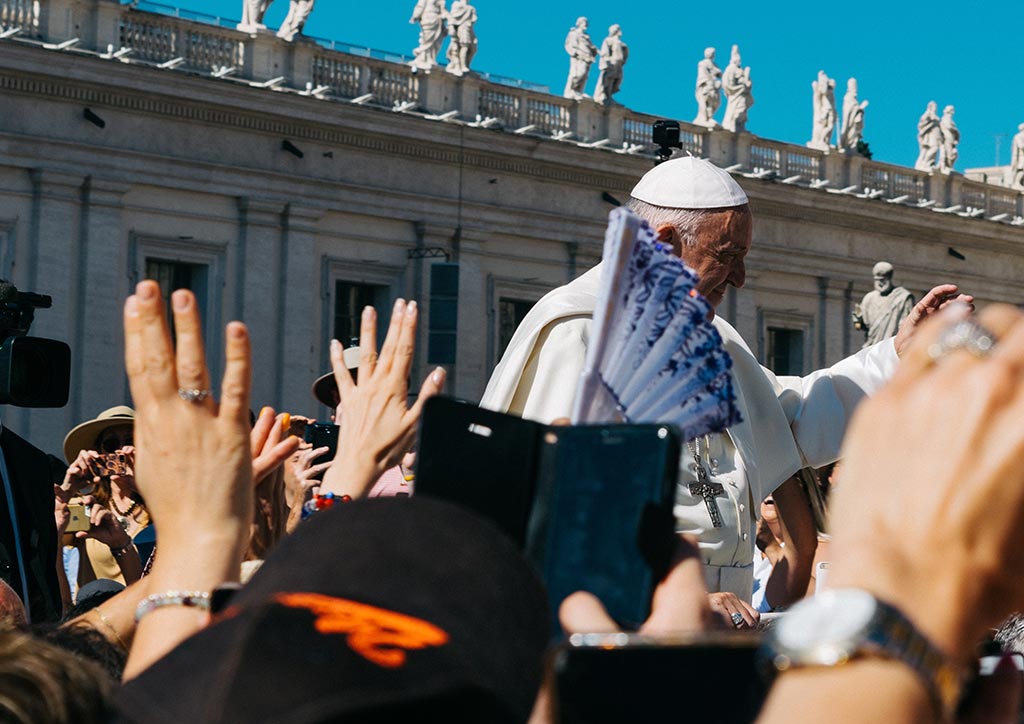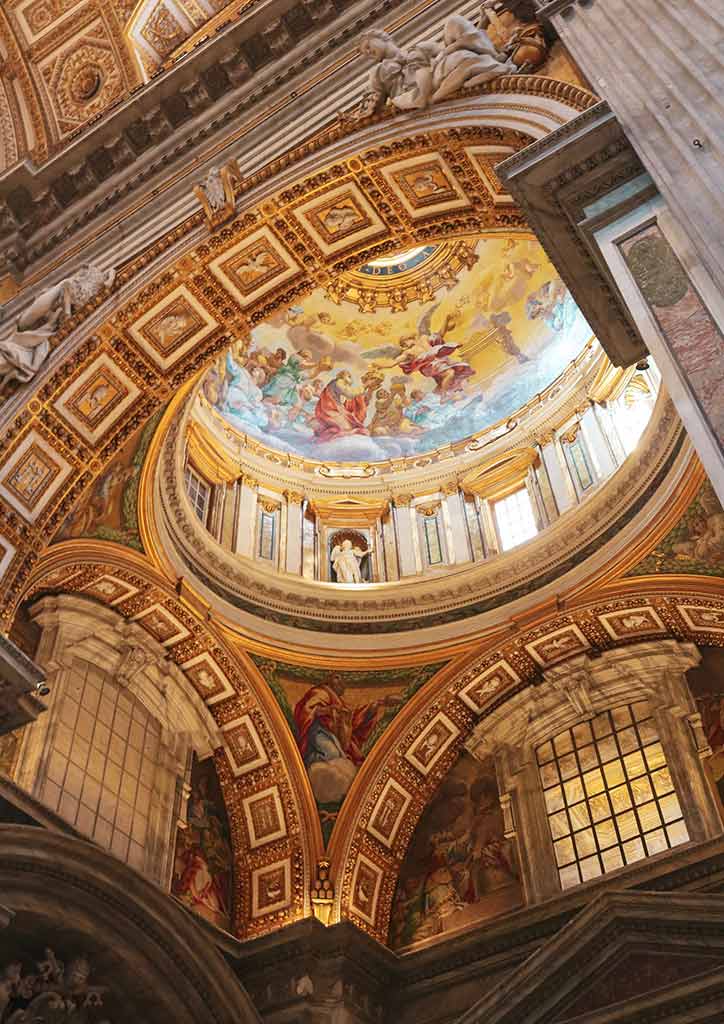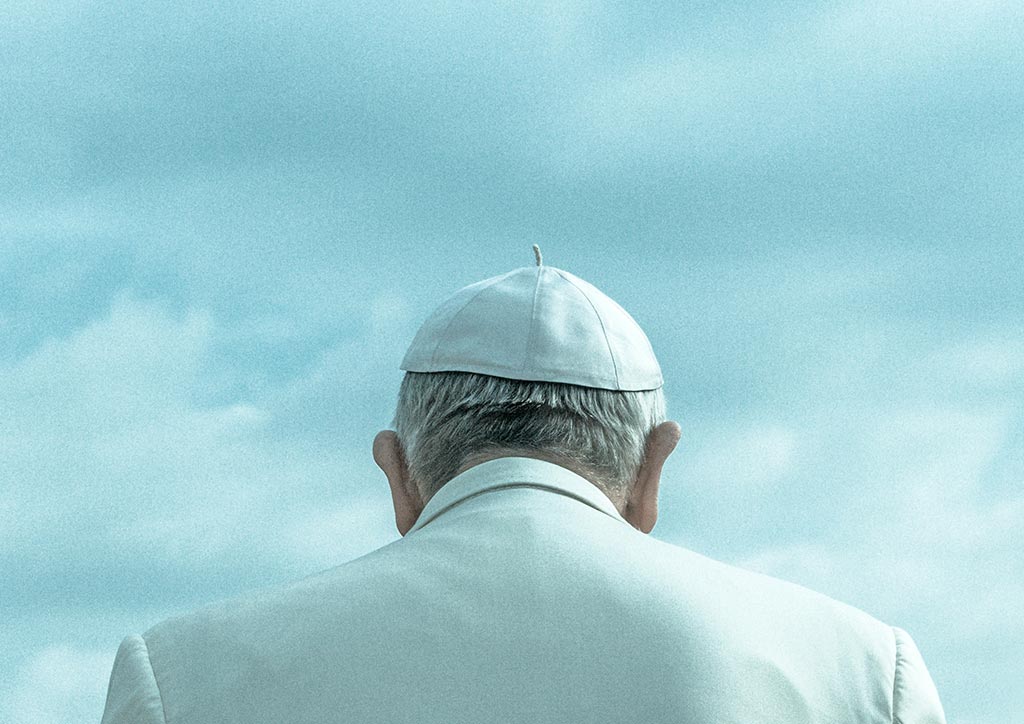“Christòs voskrés! Christ is risen!”
In his homily during the Vatican’s annual Easter Vigil mass, Pope Francis pointed to the story of the women who found the empty tomb.
READ ALSO: Holy Week 2022: Tasty Treats To Try This Easter Sunday
The Holy See was, however, the main celebrant of the mass as his health condition prevented him from standing for long hours; the 85-year-old has problems with his knees and sciatica. Instead, Italian Cardinal Giovanni Battista presided over the service as well as led the procession in near total darkness into Saint Peter’s Basilica.
Throughout the mass, the Pope sat in a big white chair at the front of the church and faced the 5,500 or so who attended. This included Ivan Fedorov, the mayor of the Ukrainian city of Melitopol. Given the dire situation in the European country, the Pope ended his homily with words of encouragement and by speaking “Christ is Risen” in Ukranian.
“Many writers have evoked the beauty of starlit nights,” the Pope begins his homily. “The nights of war, however, are riven by streams of light that portend death.”
But on this night, the Pope asked his flock to be allowed to be led by the women of the Gospel so that “we may glimpse the first rays of the dawn of God’s life rising in the darkness of our world.”

Pope Francis pointed to three things that the women din—they saw, they heard, they proclaimed. And he organized his homily by breaking each action phrase.
“With these three verbs, may we too enter into the passover of the Lord from death to life.”
Upsetting expectations
First, they saw. The women were surprised when they found the tomb in disarray
“The first proclamation of the resurrection was not a statement to be unpacked, but a sign to be contemplated,” the Pope says. “Easter begins by upsetting our expectations. It comes with the gift of a hope that surprises and amazes us.”
Sometimes, however, we, like the women, are disheartened and filled with dread. We find ourselves stopping at the “tomb of resignation and fatalism” and we “bury the joy of living.”
“All too often we look at life and reality with downcast eyes; we fix our gaze only on this passing day, disenchanted by the future, concerned only with ourselves and our needs, settled into the prison of our apathy, even as we keep complaining that things will never change,” the Pope says.

This shouldn’t be the case, he explains. We should lift our heads up, and look to the hope that Christ brings with his resurrection.
Not among the dead
The women also heard, the Pope continues. Two men in dazzling garments came to meet them at the empty tomb and asked them a striking question. “Why do you look for the living among the dead?”
He breaks that scene down into two. One, when the men say that the Lord isn’t here, it can be applied to our own expectations of him. Christ is not among our pigeonholed ideas, categories, words, formulas, and customary ways of thinking and acting.

“Whenever we seek him only in times of emotion, so often passing, and moments of need, only to set him aside and forget about him in the rest of our daily life and decisions, let us repeat: He is not here!” the Pope says.
That scene also points to the fact that Christ is not among the dead.
“We cannot celebrate Easter if we continue to be dead,” the Holy See says, “if we remain prisoners of the past; if in our lives we lack the courage to let ourselves be forgiven by God who forgives everything, the courage to change, to break with the works of evil, to decide for Jesus and his love.”
Our faith should not be reduced to a talisman, he points out, and God isn’t a memory. Those who believe need to hold on to the truth that he is alive today, and desires to change us and our world.
Bold to share
Finally, the women proclaimed. This they did despite risking being thought of as mad. The Pope wishes that the church may be similarly emboldened.
“Those women were not concerned for their reputation, for preserving their image; they did not contain their emotions or measure their words. They had only the fire in their hearts with which to bear the news, the proclamation: ‘The Lord is risen!’
This is what we’re called to do the Pope says: “to experience the risen Christ and to share the experience with others; to roll away the stone from the tomb where we may have enclosed the Lord, in order to spread his joy in the world.”
At the end of his homily, the Pope went off-script so to speak and addressed Mayor Fedorov and the ongoing Ukrainian conflict.
“In this darkness that you are living, Mr. Mayor, Parliamentarians, the thick darkness of war, of cruelty, we are all praying, praying with you and for you this night,” he says.

We are praying for all the suffering, the Pope continues. “We can only give you our company, our prayer and say to you: “Courage! We are accompanying you!” And also to say to you the greatest thing we are celebrating today: Christòs voskrés! Christ is risen!”





